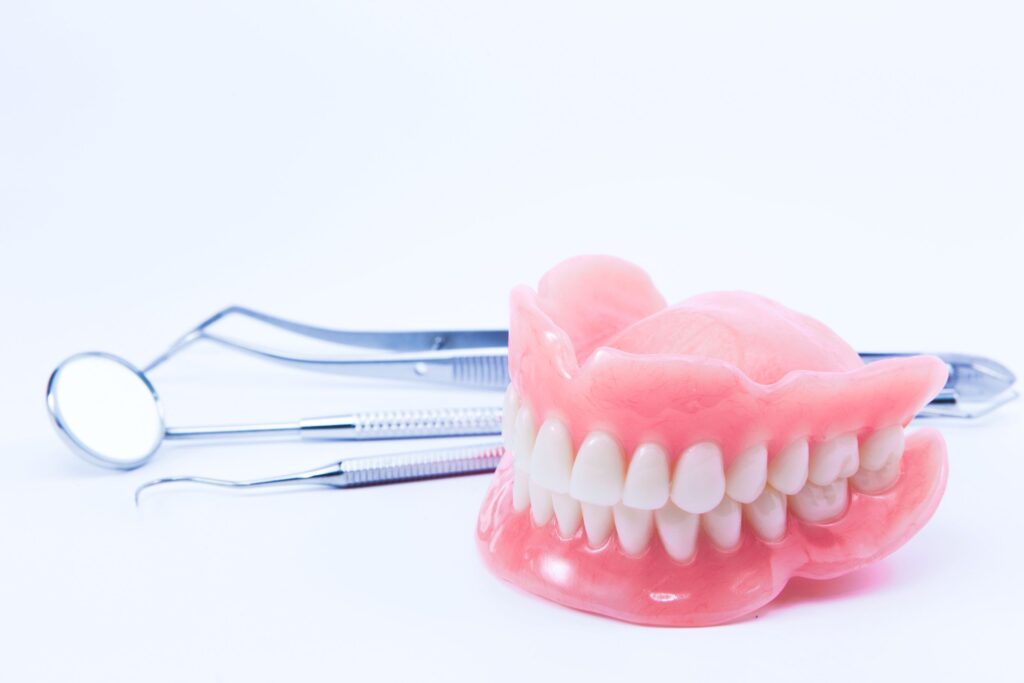
Dentures are an incredibly popular way to replace missing teeth because of their many benefits. Whether you need a full or partial set, your dentist can provide one of these lifelike restorations to close the gaps in your grin to rebuild its appearance and functionality simultaneously.
Although dentures are designed to fit like a glove, your jaw starts to thin after tooth loss, which can cause them to become ill-fitting. If you wait too long to have them repaired or replaced, you might encounter one of these 3 potential adverse effects!
Concern #1: Sores
The acrylic foundation of your teeth relies on a firm suction against the connective tissues over the bony ridges in your mouth to remain put all day long. Unfortunately, without roots to stimulate new bone growth with each bite down, your jaw starts weakening after tooth loss and becomes flatter, loosening your dentures.
This causes your restoration to rub back and forth uncomfortably against the tender tissues in your mouth when eating and speaking. Eventually, the extra friction can form blisters or sores that make it hard to wear your dentures. Not only that, but these wounds can become infected by unhealthy bacteria in your mouth and contribute to additional periodontal problems.
Concern #2: Gum Disease
If your dentures no longer fit like a glove, they are less likely to form a tight enough seal against your gums to keep germs away. You’re more likely to trap them, as well as leftover food and other debris, in the space between your connective tissues and your restoration. That gives them plenty of time and opportunity to thrive, increasing your vulnerability to gum disease.
Periodontal problems can harm more than your oral health; if they go unaddressed, they can progress and enter your bloodstream. From there, they can travel to other areas of your body and contribute to additional medical dilemmas, like heart issues or diabetes.
Concern #3: Changes in Speech
Your teeth play an essential role in your ability to communicate because you press your tongue against them in specific ways to form various sounds and words. If your dentures are destabilized because they no longer fit correctly, the muscles in your mouth are forced to overcompensate to try to hold them in place, which can cause a lisp, slur, or other changes to your speech patterns. Thankfully, this can often be overcome once your restoration is relined or replaced.
If you’re struggling to keep your dentures in your mouth, it’s time to contact your dentist to check whether they still fit!
About the Practice
At Barker, Rohner and Hunt DMD of Raleigh, you and your family benefit from three outstanding dentists with decades of combined experience. Our team collaborates to provide a comprehensive menu of services to people of all ages at one convenient location, including replacing missing teeth. They take the time to get to know you so they can quickly identify areas of concern and customize treatment plans to meet your unique needs. Then, they utilize state-of-the-art equipment to improve patient comfort while delivering accurate results meant to last. If you’re worried about your dentures, you can request an appointment on the website or call (919) 847-7100.


